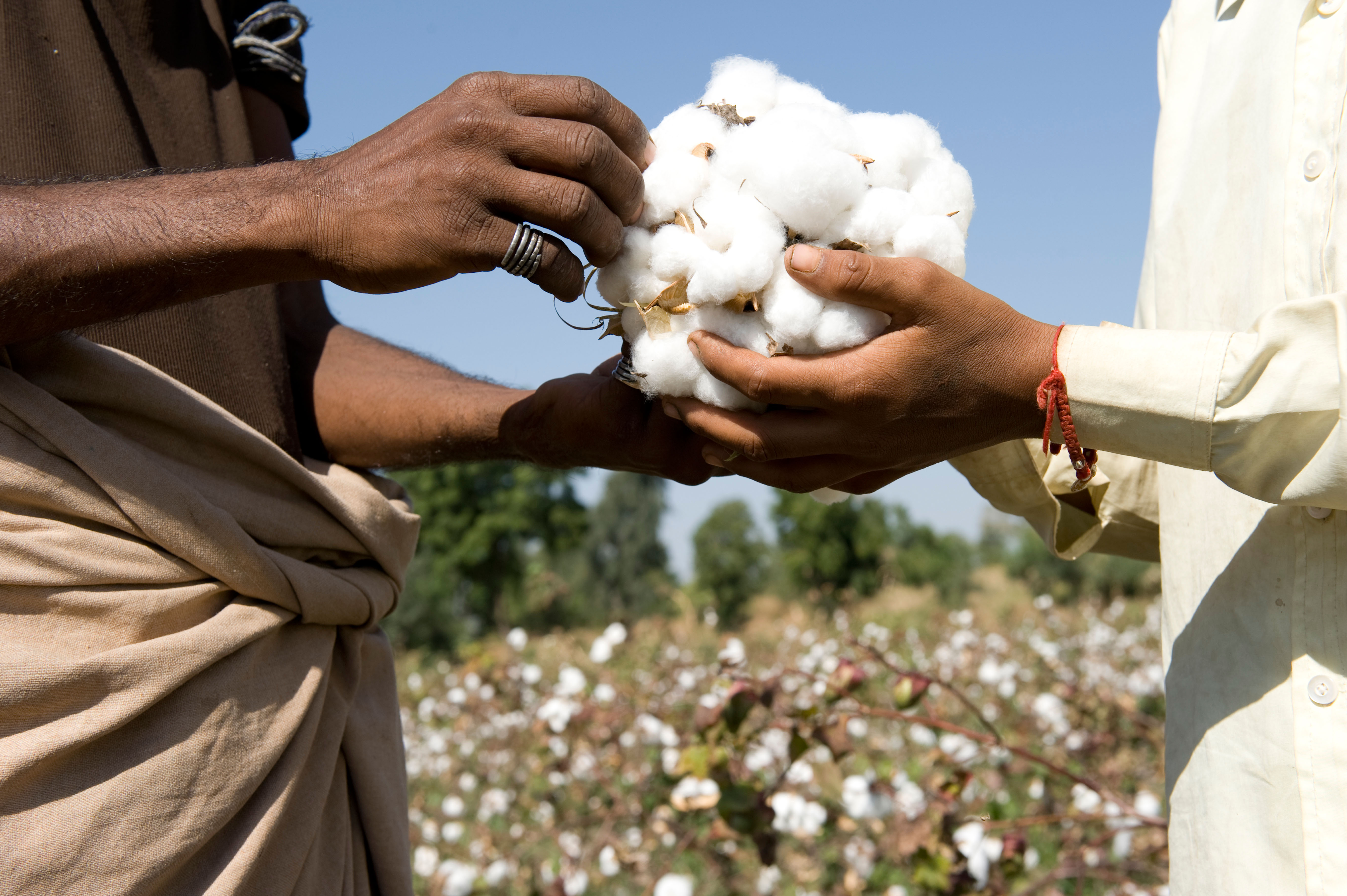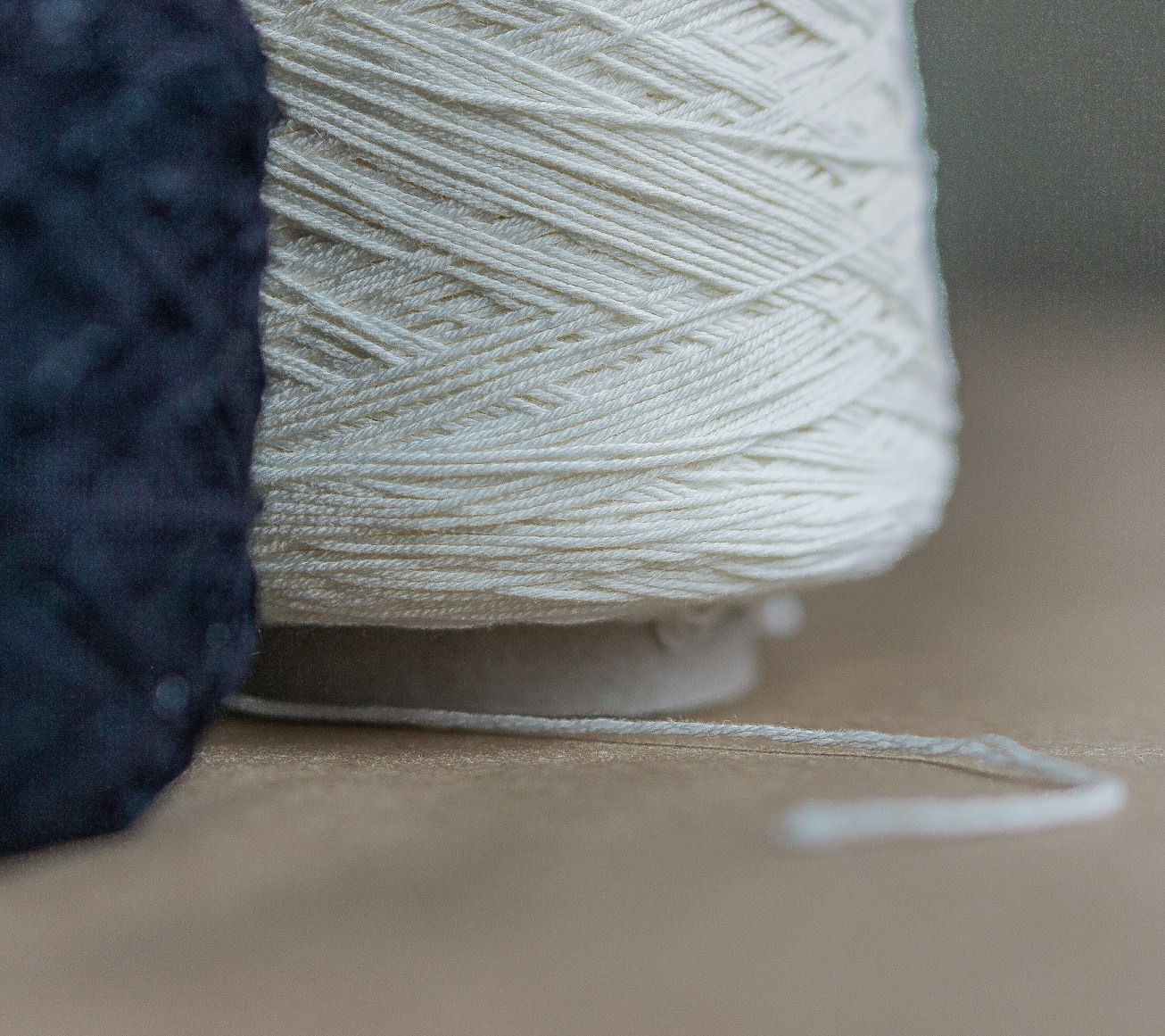Cotton is an important basic raw material for many brands and although the rule of thumb with regard to sustainable approaches would be to use recycled cotton first, this is not always possible. In some cases, virgin materials are required. The following sections describe the most sustainable practices for cotton sourcing.
Cotton accounts for 36.5% of the world's fiber demand and is grown internationally in about 80 different countries on 33 million hectares of land (about 2.5% of the world's arable land). Most of the cotton grown globally uses large amounts of pesticides and fertilizers during growth.
Around 10-13% of the global cotton supply can be classified as sustainable, yet less than a fifth of this amount is used as more sustainable cotton, with the remainder sold as conventional cotton due to low demand from major brands and companies.
Combined with the environmental and human health impacts caused by the use of these synthetic chemicals, an unsustainable amount of water is used for most cotton cultivation [1]. In addition, the cotton supply chain faces enormous sustainability challenges with examples of forced and child labor within the cotton farming industry. In fact, an extremely low proportion of cotton production (less than 1%) is actually sustainable.
Most International Companies Are Failing in Ethically-Sourced Cotton
The majority of international companies that use most of the world's cotton are failing to sustainable cotton, according to a new independent study published today by the Pesticide Action Network (PAN UK) in the UK, Solidaridad, and WWF.
Only 8 out of 37 companies managed to stay out of the red zone in the report conducted by Rank a Brand, one of Europe's largest brand comparison sites on sustainability and social responsibility.
Only Ikea, the home furnishings giant, scored highest in the green zone with 12 points out of a maximum of 19.5. C&A (9), H&M (9), and adidas (7.75) follow in the yellow zone, while Nike (6.75), Marks and Spencer (5.5), VF Corporation (3.25), and Kering (3) are in the orange zone. The other 29 companies are in the red zone and seem to operate with virtually nothing to do with cotton sustainability.
How Does CommonShare’s Standard Owner Benchmark® Work?
This is a benchmark to help companies understand which standards should be part of a sustainable procurement plan. Further, the benchmark allows standard-setting schemes, i.e. "Standard Owners", to benchmark their performance versus industry peers.
The Better Cotton Initiative - Better Cotton
Standard Owner Benchmark - BETTER COTTON
Better Cotton Initiative (BCI) is an international non-profit organization that runs the world's largest cotton sustainability program and aims to improve cotton production and help reduce the impact of cotton farming on the climate by promoting less intensive forms of planting. It essentially provides training on more sustainable farming practices to more than 2.3 million cotton farmers in 23 countries. In the 2018-19 cotton season, BCI's licensed BCI Farmers produced more than 5.6 million metric tons of "Better Cotton", representing about 22% of global production.
By the end of 2022, BCI welcomed over 400 new members, bringing the total to up to 2,500, spanning the entire global cotton supply chain, from farmer organizations to retailers and brands. As such, it seeks to lessen the negative impacts of conventional cotton production by supporting the production and sourcing of Better Cotton - cotton grown in line with the Better Cotton Principles and Criteria.
BCI connects people and organizations in the cotton sector around the world, from the field to the shops. Its aim is to make world cotton production better for the people who grow it, better for the environment in which it grows, and better for the future of the sector. That is why it embraces organizations of all kinds, from farms to fashion and textile brands, and civil society organizations, driving the cotton sector towards sustainability.
Fairtrade Cotton - Fairtrade
Standard Owner Benchmark - FAIRTRADE INTERNATIONAL
Fairtrade International works with farmers to eliminate or reduce the use of agrochemicals and supports them in adapting to changing weather patterns. Fairtrade Certified Cotton fields in West Africa and India are rain-fed, which reduces the region's water footprint compared to production in other countries.
Fairtrade Certified Cotton Standard requirements also protect the health and safety of farmers and prohibit genetically modified cotton seeds. A large percentage of Fairtrade cotton is certified organic. It also encourages and empowers cotton farmers to protect the natural environment as an integral part of their farm management.
Fairtrade changes lives by giving back prosperity to farmers in developing countries. Fairtrade is currently recognized worldwide as the most trusted sustainable trade label that provides farmers with a decent income for their labor. Fairtrade is more than a certification scheme, it is one of the most diverse movements for global change.
The organization currently works with over 1.7 million farmers supported by a base of up to 2000 Fairtrade Towns in 28 countries. Fairtrade provides producers with a decent standard of living by setting minimum prices for all major commodities.

GOTS - Global Organic Textile Standard
Standard Owner Benchmark - GLOBAL ORGANIC TEXTILE STANDARD
The Global Organic Textile Standard (GOTS) is an internationally recognized standard for organic textiles. It was developed by leading standardization organizations in the organic textile industry to ensure that textiles made from organic fibers are produced in a socially and environmentally responsible manner.
The GOTS standard covers the entire textile supply chain, from the harvesting of raw materials to the manufacturing, labeling and distribution of the final product. To be certified as GOTS compliant, a textile product must contain at least 95% organic fibers and meet strict environmental and social criteria throughout the production process.
Of all the cotton produced in the world, less than 1% is certified organic cotton. The Global Organic Textile Standard (GOTS) supports initiatives that help conventional cotton farmers become more sustainable; they need new knowledge and access to certified organic seed.
Not using pesticides and fertilizers can also have a positive impact on their health. Using organic cotton can benefit them, as they would receive a premium for producing this variety instead of conventional cotton.
